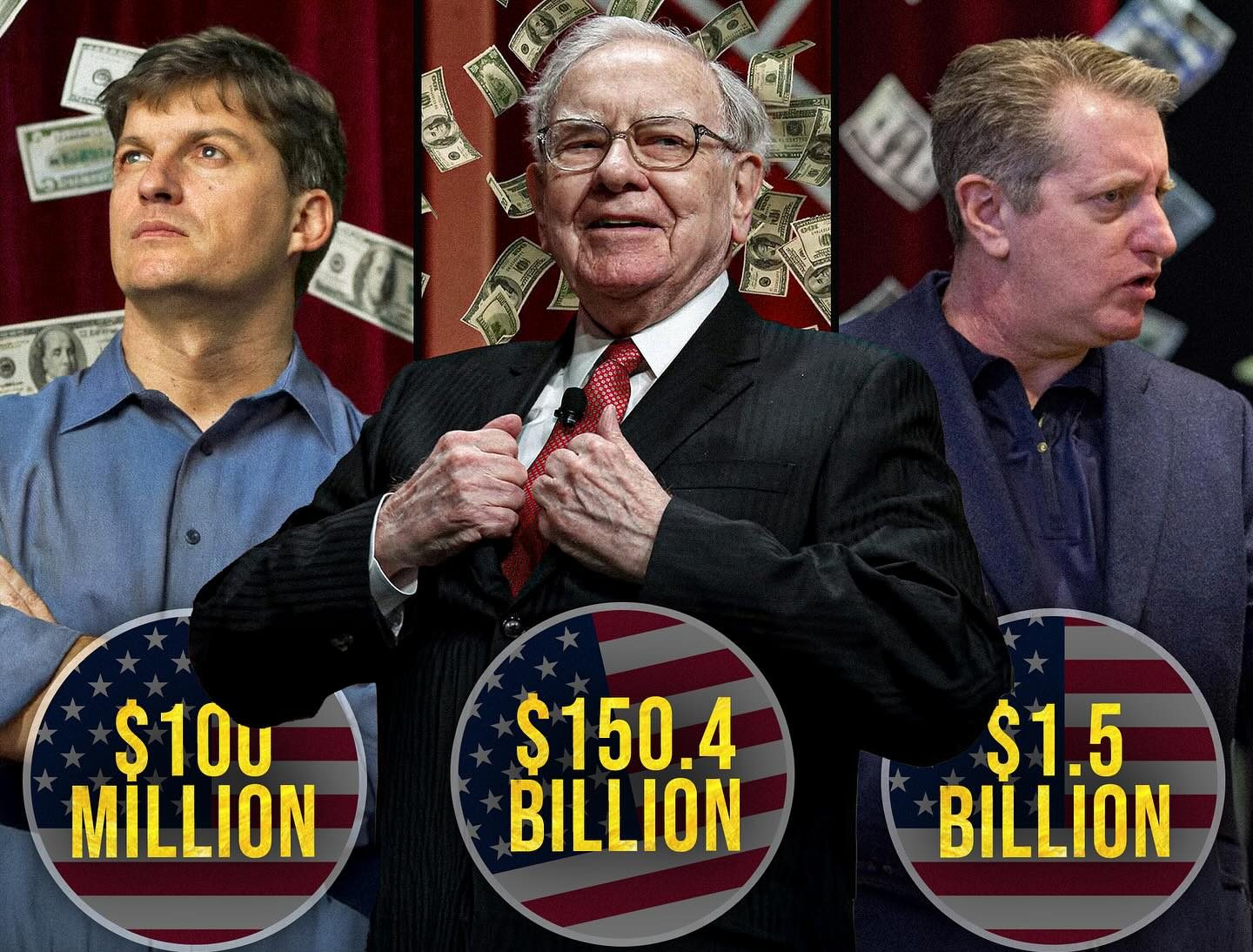The Best Investors of All Time and Their Achievements Show Why Financial Education Matters More Than Ever
Net Worth: $1.5 Billion – Steve Eisman
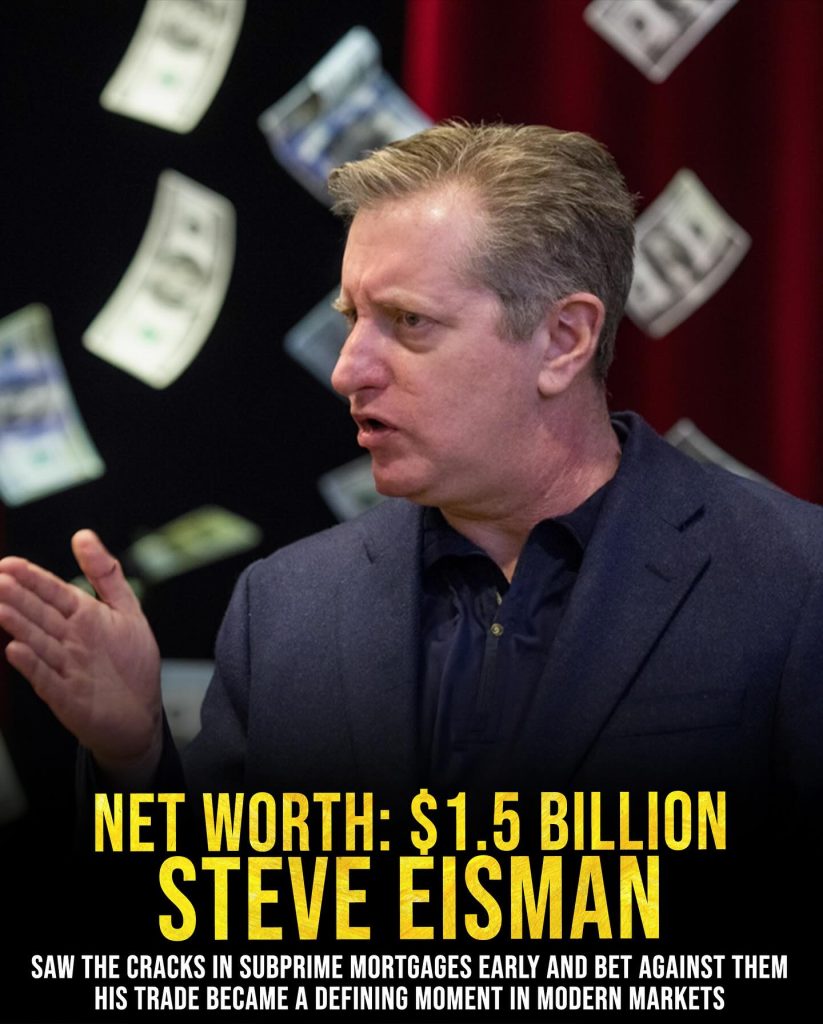
Steve Eisman became a household name after the 2008 financial crisis, but long before Hollywood turned his story into “The Big Short,” he was already carving out a reputation as a sharp, contrarian thinker. Eisman saw cracks forming in the subprime mortgage market when few others did, and he had the conviction to act on his research. Betting against the housing bubble was not only risky but also deeply unpopular at the time. Yet his foresight turned into one of the most profitable trades of modern history.
Eisman’s journey is a reminder that financial education is not just about learning formulas or reading stock charts. It’s about cultivating the ability to ask uncomfortable questions, to spot flaws in widely accepted narratives, and to develop the discipline to act when evidence supports your conviction. His story speaks to investors today who want to understand not just how markets rise, but why they sometimes collapse.
Net Worth: $1.7 Billion – Bill Gross
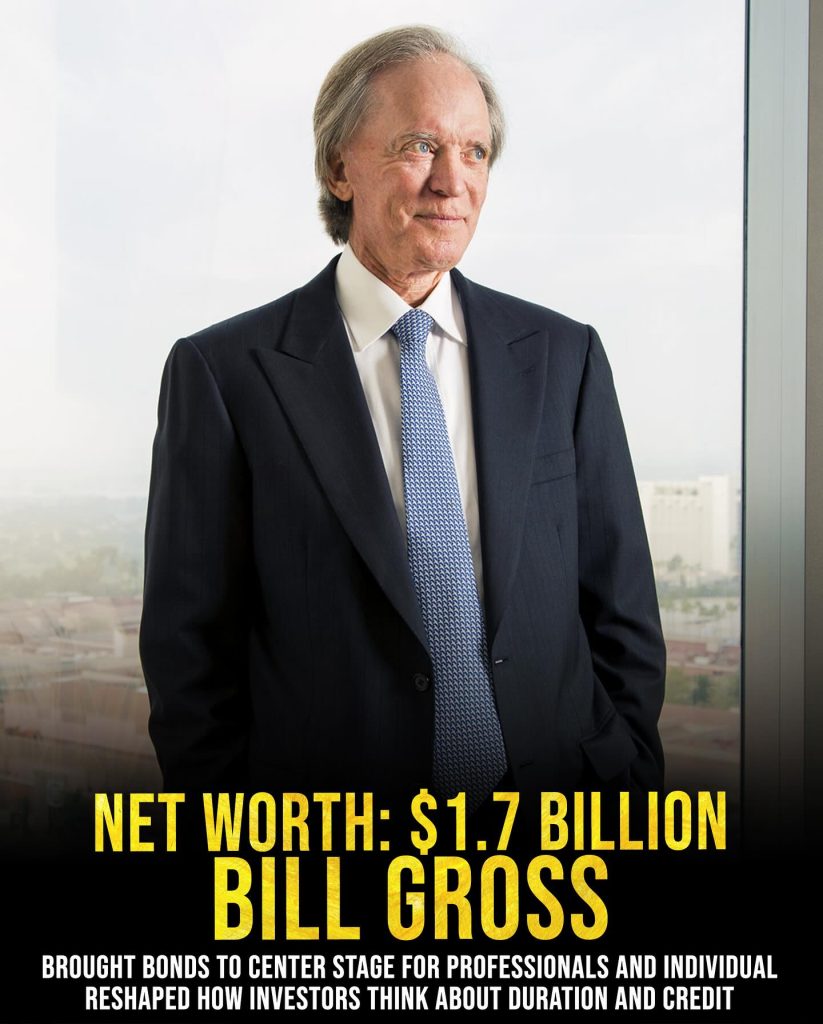
Known as the “Bond King,” Bill Gross reshaped how Wall Street and ordinary investors alike viewed fixed income. At a time when bonds were considered dull, predictable investments, Gross transformed them into a centerpiece of global portfolios. As the co-founder of PIMCO, he pioneered strategies that balanced duration, credit, and interest-rate risk in ways that maximized returns while managing volatility.
Gross showed the world that financial education is not just about stocks—it’s about understanding the full spectrum of capital markets. For millions of retirees, pension funds, and everyday savers, his insights proved that bonds could deliver stability and growth. His legacy reminds investors to look beyond headlines and appreciate the hidden mechanics of wealth-building.
Net Worth: $150.4 Billion – Warren Buffett
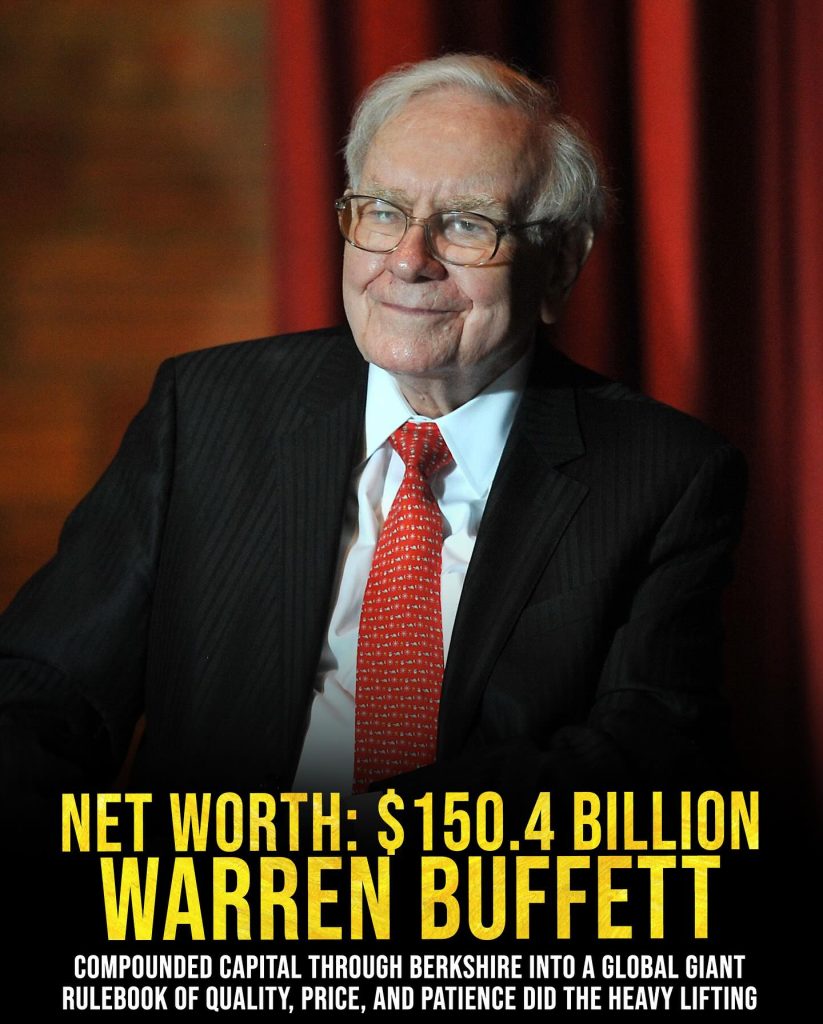
Warren Buffett’s name is synonymous with investing itself. Through Berkshire Hathaway, he transformed modest sums into a global empire by sticking to principles of value investing: buying quality businesses at fair prices, holding them for the long term, and letting compounding do the heavy lifting.
Buffett’s genius lies not in chasing fads but in patiently waiting for opportunities that align with his rulebook of quality, price, and patience. His journey proves that financial education is not just about seeking the next big thing—it’s about consistency, discipline, and trust in time-tested principles. For every investor starting out, Buffett’s path shows that fortunes can be built steadily, one thoughtful decision at a time.
Net Worth: $450 Million – Peter Lynch
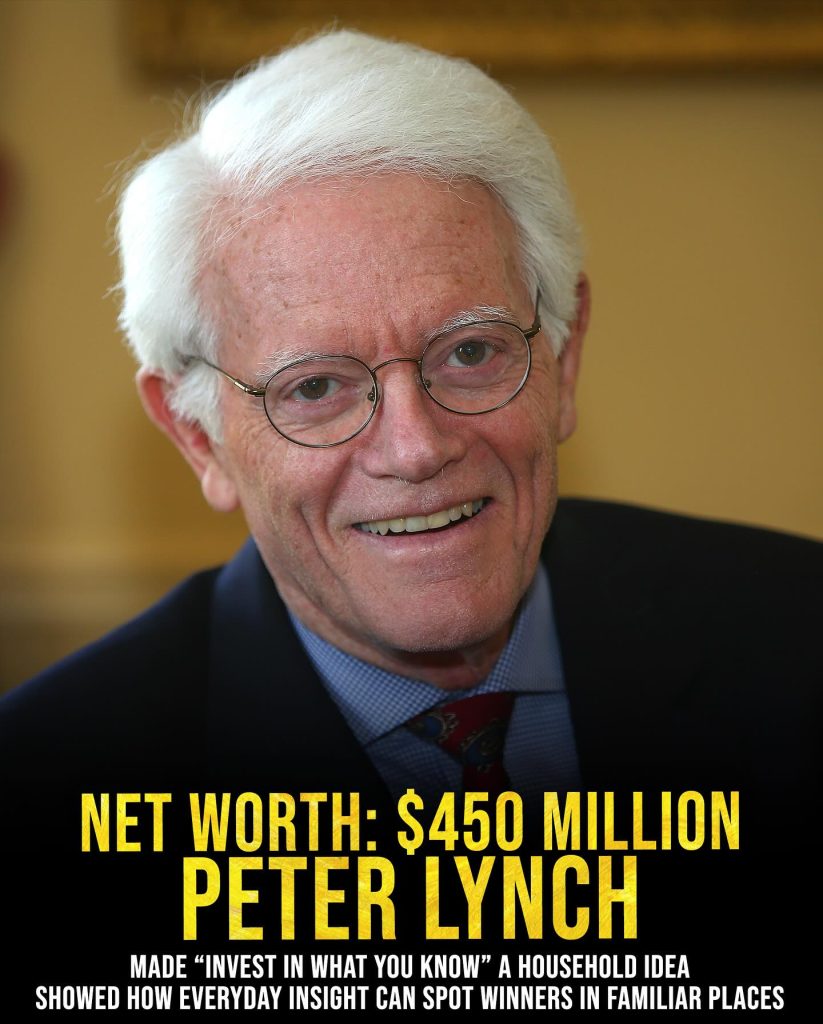
Peter Lynch made investing relatable. As the manager of the Magellan Fund at Fidelity, he delivered extraordinary returns while popularizing the idea of “invest in what you know.” Lynch encouraged ordinary people to see the value in everyday experiences, whether it was spotting long lines at a fast-food chain or noticing trends at the local mall.
His message was clear: you don’t need to be a Wall Street insider to make smart investments. What you do need is curiosity, awareness, and the willingness to do your homework. Lynch’s philosophy empowered generations of individual investors, reminding them that the seeds of wealth are often planted in the places we encounter every day.
Net Worth: $1.5 Billion – Jesse Livermore
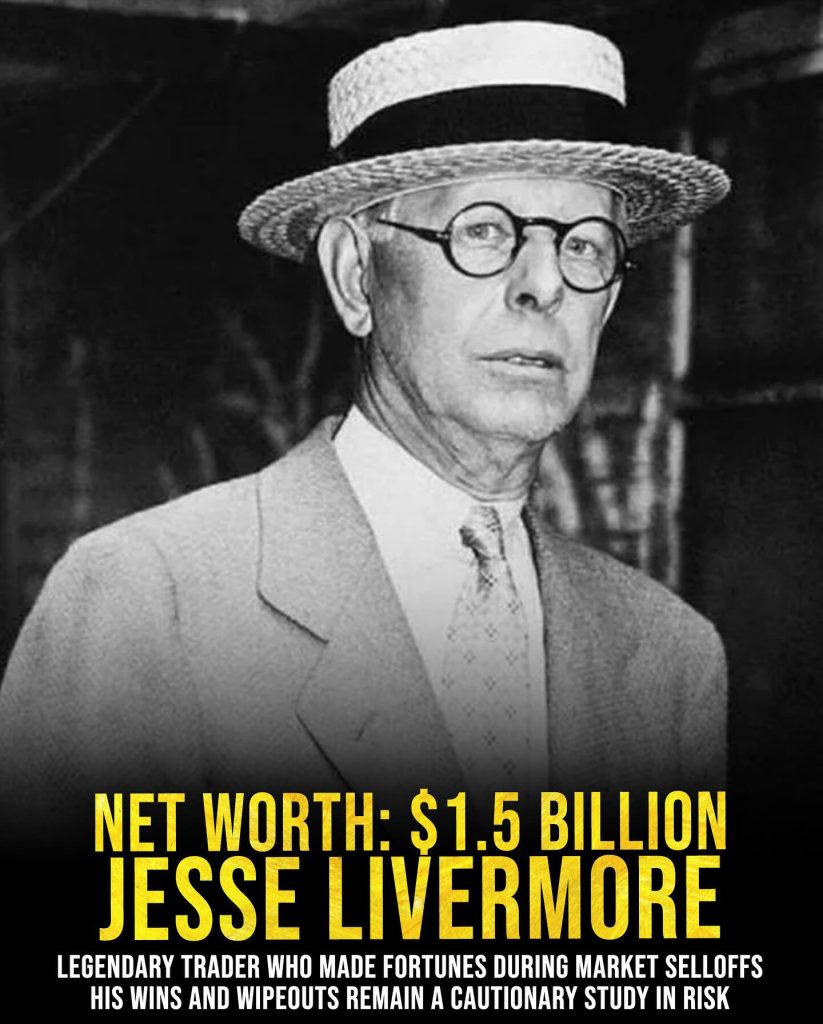
Jesse Livermore’s story is both inspirational and cautionary. A legendary trader of the early 20th century, Livermore made—and lost—fortunes multiple times by timing markets and betting big during periods of panic and euphoria. His triumphs during market crashes made him a legend, but his wipeouts remind us of the dangers of overconfidence and excessive leverage.
For today’s investors, Livermore’s life underscores the importance of risk management. Financial education isn’t only about identifying opportunities—it’s also about understanding your limits and respecting the unpredictable nature of markets. His legacy remains a study in both brilliance and excess.
Net Worth: $5 Million – John Neff
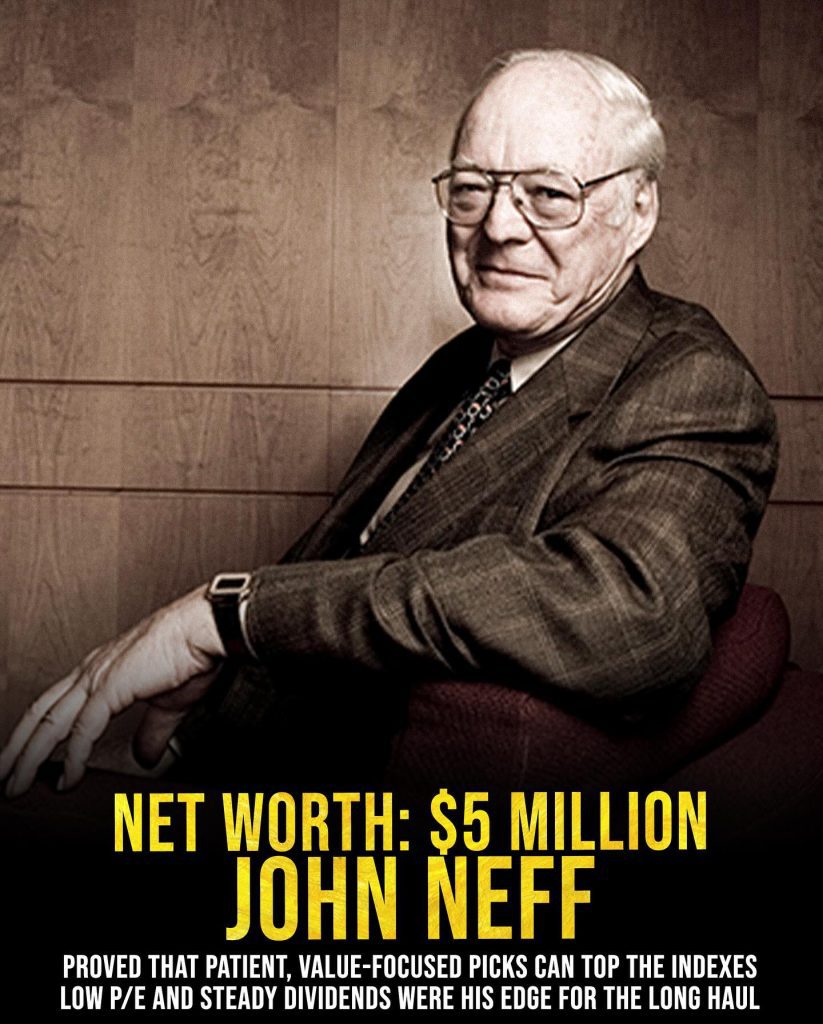
John Neff may not have achieved the same fame as Buffett or Lynch, but his disciplined value approach made him one of the most respected fund managers of his time. Neff proved that patient, value-focused investing could outperform flashy strategies. His focus on low price-to-earnings ratios, steady dividends, and long-term compounding showed that slow and steady can indeed win the race.
His career serves as a reminder that not all financial success comes from billion-dollar headlines. For countless investors who simply wanted reliable growth, Neff’s philosophy was a blueprint for security and confidence.
Net Worth: $13 Billion – John Templeton
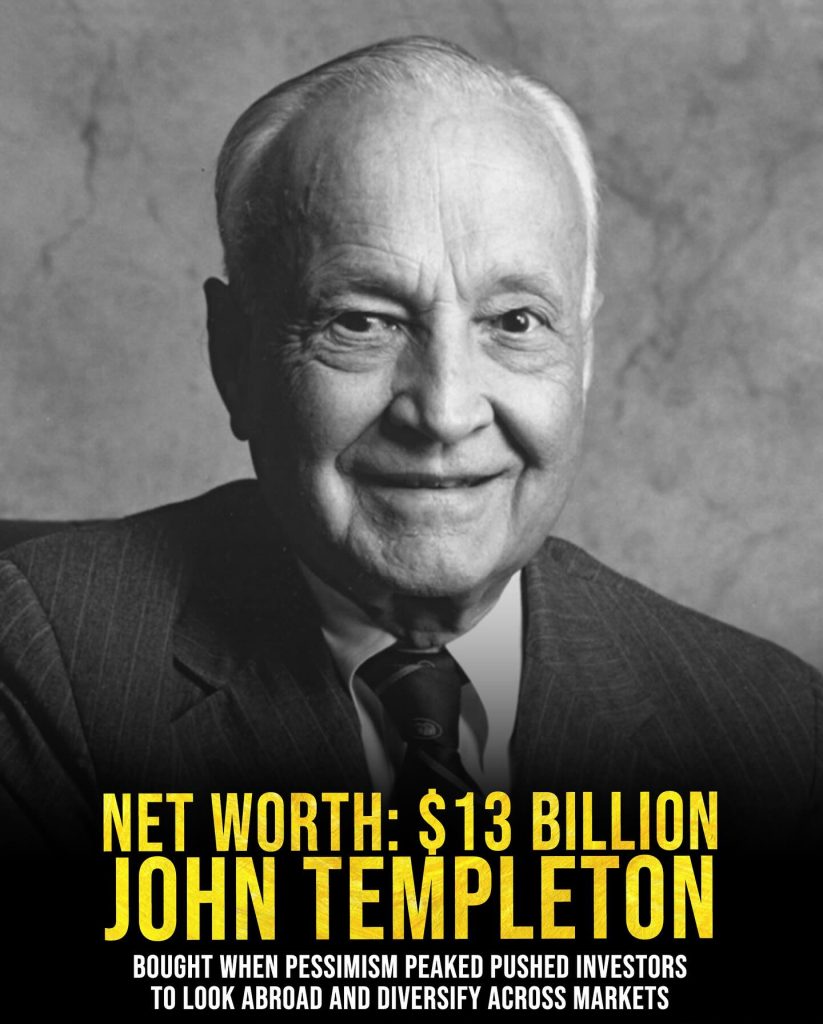
Sir John Templeton took investing global. At a time when many American investors were reluctant to look abroad, he saw opportunities in foreign markets and encouraged diversification beyond U.S. borders. Templeton’s success came from buying when pessimism was at its peak, teaching investors that courage during downturns often yields the greatest rewards.
Templeton’s lessons highlight the importance of broadening horizons, both geographically and mentally. Financial education is not just about the familiar; it’s about developing the courage to step into the unknown and recognize value where others see only risk.
Net Worth: $23.79 Billion – Thomas Rowe Price Jr.
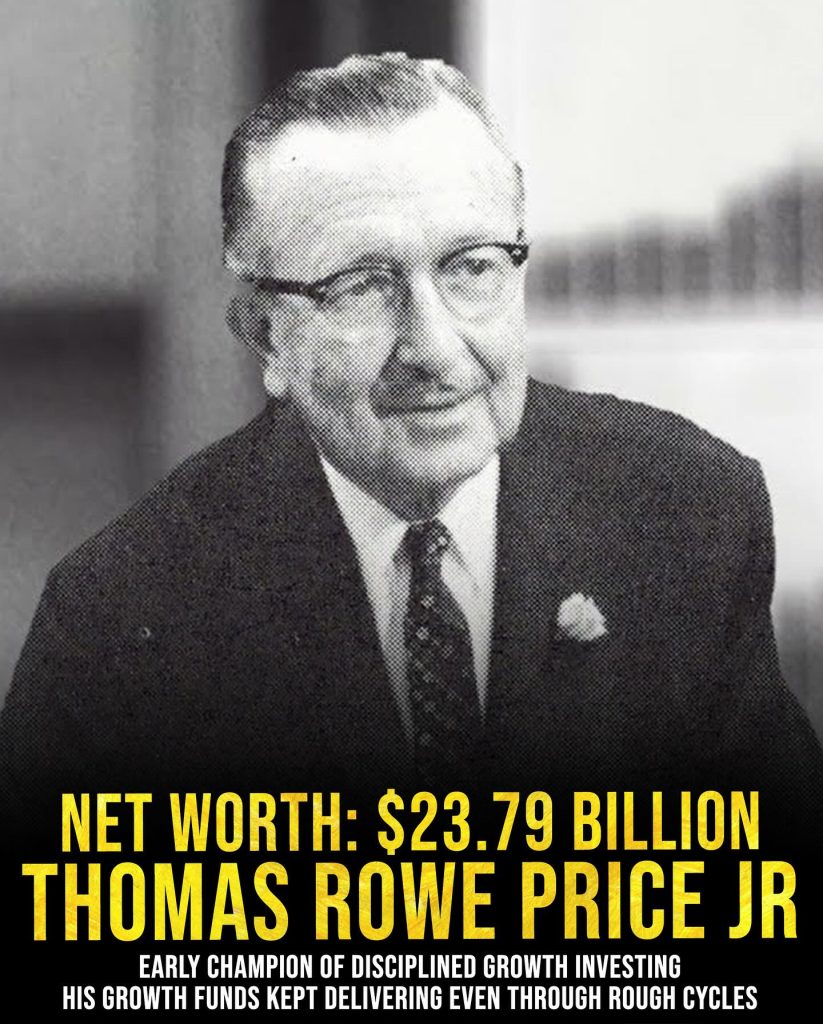
Thomas Rowe Price Jr., often considered the father of growth investing, showed that disciplined analysis and long-term conviction could deliver extraordinary results even in turbulent times. His philosophy emphasized steady growth, diversified portfolios, and the power of compounding over decades.
Price’s contributions laid the foundation for many modern mutual funds and retirement accounts. His story demonstrates how financial education, when paired with discipline and vision, can change the trajectory of not just individual portfolios but entire industries.
Net Worth: $3 Million – Benjamin Graham
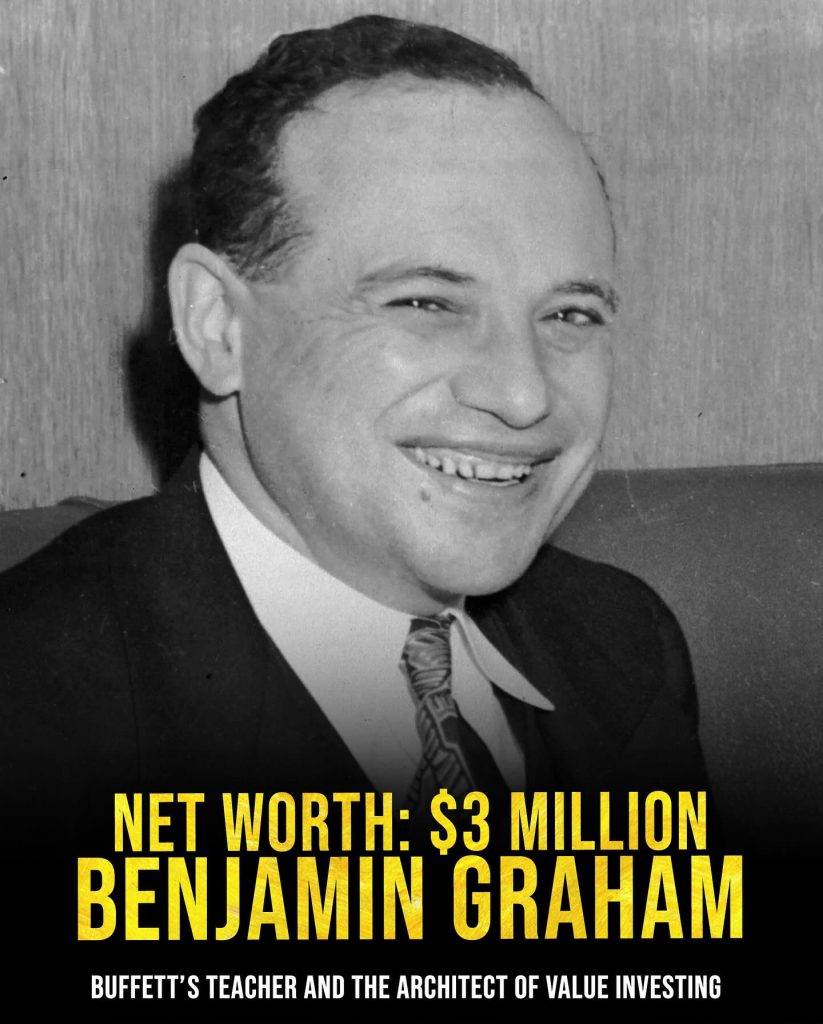
Benjamin Graham may not have amassed the same fortune as some of his students, but his intellectual legacy is unmatched. Known as the father of value investing, Graham wrote “The Intelligent Investor,” a book that remains essential reading decades after its publication. His teachings shaped the strategies of Warren Buffett and countless others, cementing his role as one of the most influential thinkers in financial history.
Graham’s story reminds us that wealth is not always measured in dollars. Sometimes, it is the wisdom passed down to others that defines a true legacy. His insights continue to guide financial education, offering timeless lessons in discipline, safety, and rationality.
Net Worth: $80 Million – John “Jack” Bogle
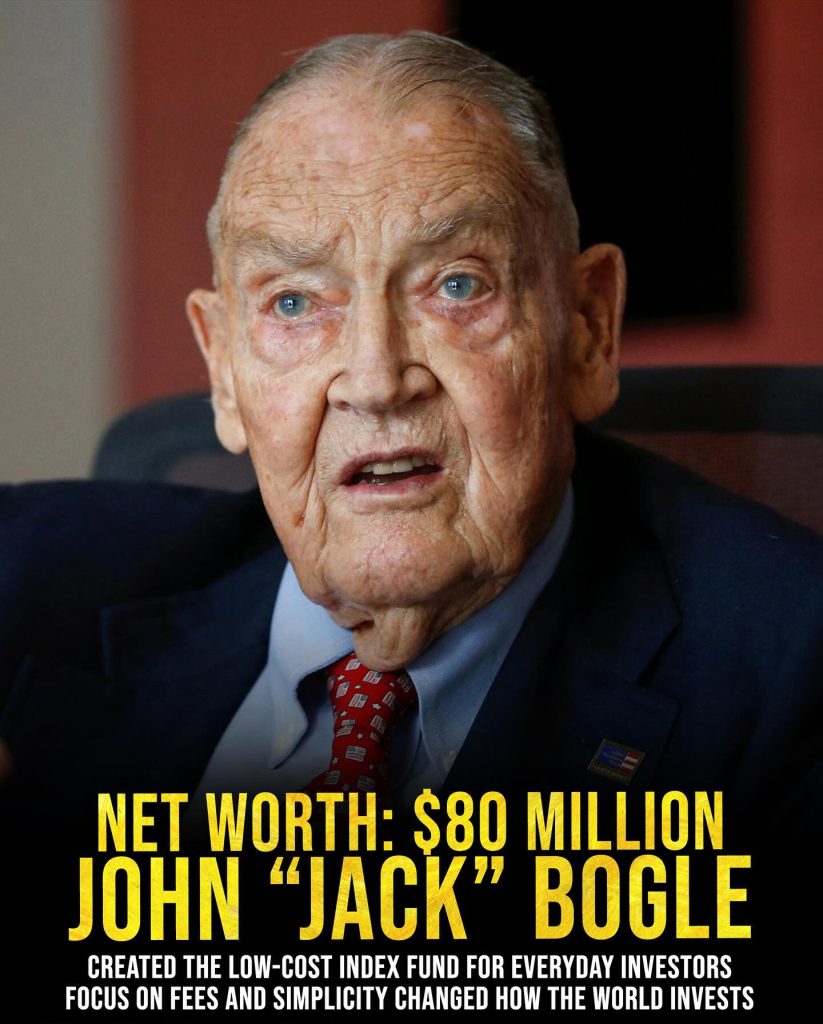
John “Jack” Bogle changed the way the world invests by creating the low-cost index fund. At a time when Wall Street was dominated by high fees and complicated products, Bogle introduced simplicity and accessibility. His belief was that everyday investors deserved the same opportunities as large institutions, without losing money to unnecessary management costs. Through Vanguard, he built a legacy of empowering small investors, showing that long-term investing in broad market indexes could outperform most professionals. His focus on keeping costs low and staying disciplined reshaped the entire financial industry and made him a hero to millions of ordinary people trying to grow their savings.
Net Worth: $100 Million – Michael Burry
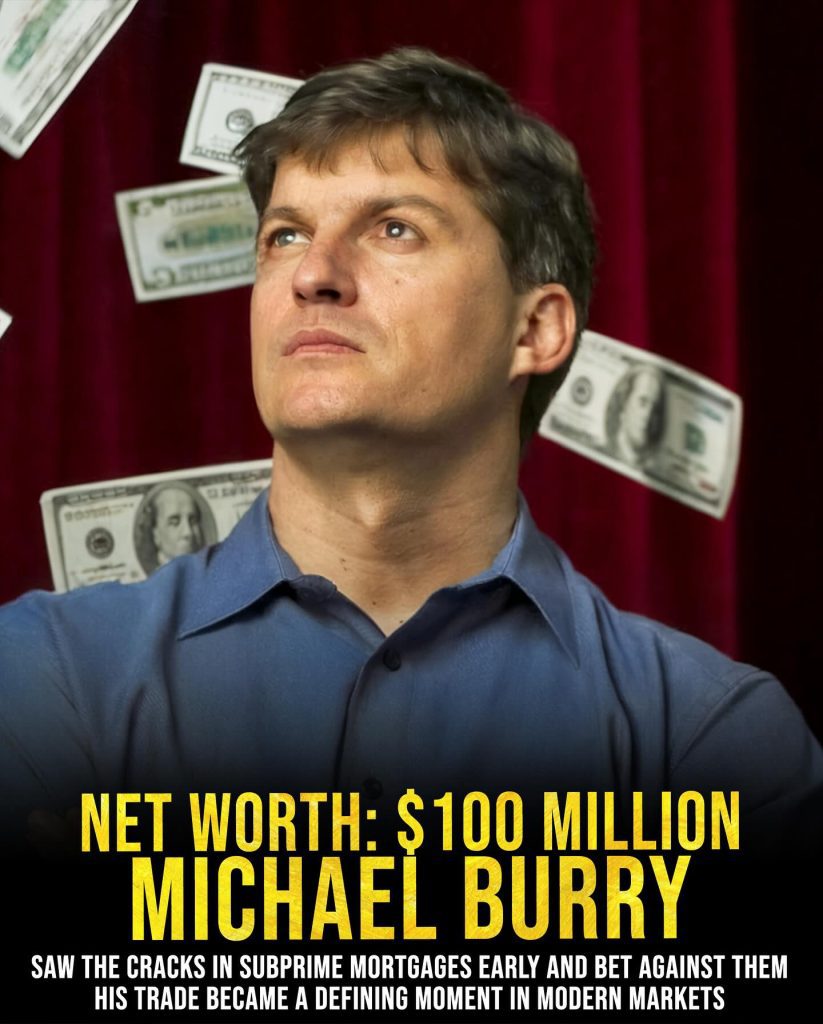
Michael Burry became famous for his bold bet against the U.S. housing market before the 2008 financial crash. While most of the world believed the system was unshakable, Burry’s deep research showed him that subprime mortgages were built on a fragile foundation. He had the conviction to invest against the trend, even when almost everyone thought he was wrong. When the crash came, his decision became one of the most legendary trades in history. Burry’s story is more than just about making money—it’s about the courage to trust your own research, the patience to withstand criticism, and the discipline to act when you see the truth. His example teaches modern investors that sometimes the greatest opportunities are hidden in the places where others refuse to look.
When we look at these legendary investors, we see more than just numbers on a balance sheet. We see stories of conviction, discipline, mistakes, and resilience. Their journeys show that financial education is not a luxury—it’s a necessity. Whether managing an eight-figure stock portfolio or making your first investment, the principles remain the same: understand risk, act with discipline, and never stop learning.
The best investors of all time didn’t just make money—they reshaped how we think about money itself. And for anyone who aspires to financial independence, their lives are living textbooks, filled with lessons that are as relevant today as they were decades ago.
Want to Learn More About Financial Education?
The message of learning financial education is timeless. Markets are always evolving, and no matter how much money you have, knowledge is the key to protecting and growing it. Following educators and financial voices like @themarkbam helps bridge the gap for new investors, simplifying complicated stock market concepts into lessons that can be understood by anyone. Financial education is not only about learning to invest—it’s about gaining the confidence to make informed decisions, avoid common mistakes, and build long-term wealth. For beginners and professionals alike, continuously learning is the only way to stay ahead in a world that never stops changing.

